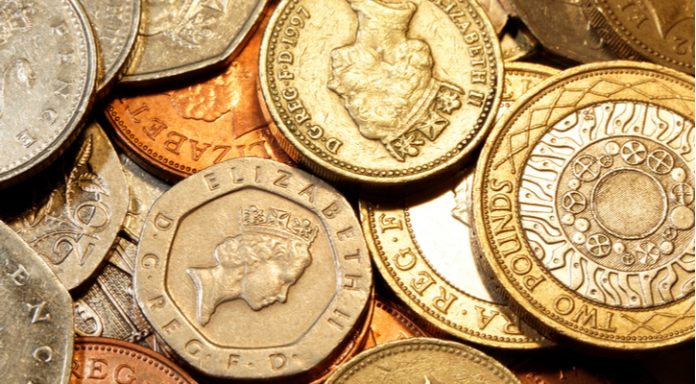The pound charged higher on Bank of England (BoE) optimism whilst the euro was under pressure once again as European Central Bank comments weighed on demand. The pound euro exchange rate hit a peak of €1.1186, marginally below its high from Monday.
| What do these figures mean? |
|---|
|
When measuring the value of a pair of currencies, one set equals 1 unit and the other shows the current equivalent. As the market moves, the amount will vary from minute to minute. For example, it could be written: 1 GBP = 1.13990 EUR Here, £1 is equivalent to approximately €1.14. This specifically measures the pound’s worth against the euro. If the euro amount increases in this pairing, it’s positive for the pound. Or, if you were looking at it the other way around: 1 EUR = 0.87271 GBP In this example, €1 is equivalent to approximately £0.87. This measures the euro’s worth versus the British pound. If the sterling number gets larger, it’s good news for the euro. |
The pound surged higher in early trading on Tuesday after Bank of England policy maker Vlieghe said that he saw the case for 1 to 2 interest rate rises per year if UK wages and productivity picked up. His comments were particularly well received by pound traders because he is usually one of the more conservative or dovish policy makers. Increased prospects of higher interest rates lifted the value of the pound.
| Why do raised interest rates boost a currency’s value? |
|---|
| Interest rates are key to understanding exchange rate movements. Those who have large sums of money to invest want the highest return on their investments. Higher interest rate environments tend to offer higher yields. So, if the interest rate or at least the interest rate expectation of a country is relatively higher compared to another, then it attracts more foreign capital investment. Large corporations and investors need local currency to invest. More local currency used then boosts the demand of that currency, pushing the value higher. |
Recently the pound has been very Brexit focused so these comments from Vlieghe, who was speaking about unwinding Quantitative Easing at Imperial College Business School were a well received distraction from the lack of Brexit progress.
The pound may struggle to maintain its strength today as investors look towards sales data from the Confederation of British Industry (CBI). CBI sales are expected to show a sharp decline in September after a particularly strong summer. Should the data disappoint, the pound could fall.
| Why does poor economic data drag on a country’s currency? |
|---|
| Slowing economic indicators point to a slowing economy. Weak economies have weaker currencies because institutions look to reduce investments in countries where growth prospects are low and then transfer money to countries with higher growth prospects. These institutions sell out of their investment and the local currency, thus increasing supply of the currency and pushing down the money’s worth. So, when a country or region has poor economic news, the value of the currency tends to fall. |
ECB Peter Praet Talks The Euro Lower
Whilst the euro had received a boost from comments by European Central Bank Governor Mario Draghi earlier in the week, ECB policy maker Praet, quickly rebalanced any optimism in the previous session. Draghi’s confidence that core inflation was “relatively vigorous” was not matched by Praet, who downplayed Draghi’s comments by saying that he didn’t believe that Draghi intended to send a new message to the market regarding a pickup in inflation. His comments dampened hopes for an interest rate rise from the ECB sending the euro lower.
Today there is no high impacting economic data from the eurozone, neither are there any ECB policy makers speaking. Today is the US Federal Reserve monetary policy decision. The euro often trades inversely to the US dollar and given that there are no influential eurozone region events, the euro could be driven by US dollar events.
This publication is provided for general information purposes only and is not intended to cover every aspect of the topics with which it deals. It is not intended to amount to advice on which you should rely. You must obtain professional or specialist advice before taking, or refraining from, any action on the basis of the content in this publication. The information in this publication does not constitute legal, tax or other professional advice from TransferWise Inc., Currency Live or its affiliates. Prior results do not guarantee a similar outcome. We make no representations, warranties or guarantees, whether express or implied, that the content in the publication is accurate, complete or up to date. Consult our risk warning page for more details.
This article was initially published on TransferWise.com from the same author. The content at Currency Live is the sole opinion of the authors and in no way reflects the views of TransferWise Inc.





